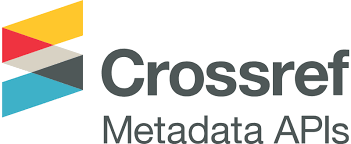THE INFLUENCE OF MOTIVATION AND INCENTIVES ON THE PERFORMANCE OF GOJEK DRIVERS IN JAKARTA (Case study of the Tebet Jakarta community UFO)
DOI:
https://doi.org/10.33541/fjm.v8i1.4797Abstract
The purpose of this study was to determine the effect of motivation on the perfomance of drivers in the UFO Community of Tebet Jakarta, to determine the effect of incentives on the perfomance of drivers in the UFO Community of Tebet Jakarta. The tipe of research used in quantitative research. This quantitative research method aims to determine the effect between the independet variable and the dependet variable. The pupulation of this study are all members of the UFO Community of Tebet Jakarta, totaling 38 drivers. The sample taken is the entire population, namely 38 drivers. The result showed that based on the partial test result, the effect of motivation on driver performance was obtained tcount (3.251) > ttable (2.028), with a significant level of 0.001 < 0.05. The value of 3.251 is greater than 2.028, indicating that tcount is greater than ttable. From these results it can be concluded that Ha is accepted (Hois rejected). This shows that there is a significant influence between motivation and driver performance. Based on the partial test results, the effect of incentives on driver performance is obtained tcount (4.656) > ttable (2.028) with a significant level of 0.000 < 0.05. The value of 4.656 is greater than 2.028, indicating that tcount is greater than ttable. From these results it can be concluded that Ha is accepted (Ho is rejected). This shows that there is a significant influence between incentives on driver performance.
Keywords: Motivation, Incentives and Performance
















